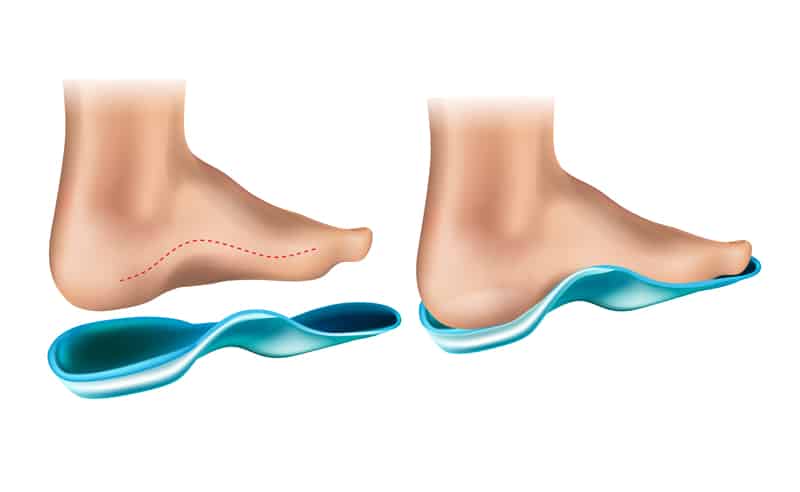Now accepting Telehealth appointments. Schedule a virtual visit.
A patient came in after wanting to help ease his arthritis pain. He was preparing for a marathon but the pain was hindering him from training. He thought if he could visit the podiatrist that he could find a solution for it. When he finished his marathon, he most definitely thanked his orthotics for it.
The best custom orthotics are more than just heel pads or shoe inserts you can buy at most athletic stores. They’re highly customized shoe or heel inserts made for your feet. Your doctor will only recommend an orthotic if an off-the-shelf device or other treatments, such as exercises at home, haven’t proven effective. The overall goal is to relieve pain and discomfort you experience due to foot problems.
Here at Cutting Edge Foot and Ankle, your podiatrist will conduct a physical exam of your feet to determine your overall foot health. They’ll look for deformities and areas that are especially painful.
At your appointment, the doctor will likely ask you to walk and perform other activities to determine how the feet and ankles are positioned during certain exercises. We have special 3 D imaging where you walk. These images will show how and where your feet strike the ground and can help determine the exact location and type of problems in the structure and function of your feet.
Doctors may prescribe custom orthotics to treat several medical conditions that cause foot pain or foot issues. Examples include:
Rheumatoid arthritis and osteoarthritis can cause discomfort in the feet and poor positioning that orthotics may help to correct.
Sometimes poor positioning of the feet, such as arches that roll inward, or lack of cushioning can cause pain that orthotics can lessen.
Bunions are painful bumps that can develop at the base of the big toe and cause foot deformities. Orthotics with a wide toe box can help to reduce pressure on the big toe.
Inflammation of fluid-filled sacs in the heels and toes can cause bursitis pain and discomfort. Orthotics with heel and arch support can help to reduce bursitis discomfort.
Sometimes, a person with diabetes can lose sensation in their feet, a condition known as diabetic neuropathy. When this occurs, orthotics can help to reduce excess stress and pressure that can lead to foot ulcers.
Flat feet can cause back, ankle, or foot pain. Orthotics can help to support the feet and promote proper foot positioning.
Hammer toes often occur as a side effect of bunions on the big toe. They cause second-toe pain and deformities on the ball of the foot. Orthotics can provide additional support to the feet and reduce the likelihood that hammer toes will worsen.
Heel spurs are conditions where excess bone grows on the back or bottom of the heel. Orthotics can support the foot and reduce inflammation.
Very high arches can stress muscles in the feet and lead to several conditions, such as shin splints, knee pain, and plantar fasciitis. Orthotics can help prevent a person’s feet from rolling excessively inward or outward.
People who’ve experienced trauma to their feet and ankles may require extra support during the healing process with orthotics.
Plantar fasciitis is a common cause of heel pain. Doctors may sometimes recommend orthotics to support the heel and foot.
